The WRMarketplace is created exclusively for AALU members by experts at Greenberg Traurig and the AALU staff, led by Jonathan M. Forster, Steven B. Lapidus, Martin Kalb, Richard A. Sirus, and Rebecca Manicone. WRMarketplace #17-01 was written by Greenberg Traurig Shareholder Karen D. Yardley.
The AALU WRNewswire and WRMarketplace are published by the Association for Advanced Life Underwriting® as part of the Essential Wisdom Series, the trusted source of actionable technical and marketplace knowledge for AALU members—the nation’s most advanced life insurance professionals.
TOPIC: Who’s Who – Are Trust Advisors Fiduciaries? Does It Matter?
MARKET TREND: Clients are hearing much more about terms like trust protectors, investment advisors, and business directors. As the sophistication of irrevocable trusts increases, so too does the use of these so-called “Trust Advisors,” who have the authority to direct the trustee’s actions. As more clients decide to provide more oversight for their trusts, which increasingly hold more complex assets, attorneys have begun to unbundle the traditional trustee role to provide a more robust management system for trusts.
SYNOPSIS: A Trust Advisor is an individual (or a group of individuals) separate from the settlor (the creator) of a trust, the trustee, or a beneficiary, who is designated in the trust instrument to direct the trustee in the exercise of the trustee’s powers. Trust protectors, investment advisors, distribution advisors, and business advisors/directors are all variations of the Trust Advisor role.
Trust Advisors are most commonly used for larger trusts or those that hold complex assets like private equity, operating businesses, and family compounds. The authority granted to the Trust Advisor can include any power the settlor believes will assist in the trust’s administration, including the authority (1) to direct distributions to beneficiaries, (2) to direct the investment of trust assets or the management of family businesses, and/or (3) to remove and replace the trustee and other advisors. The key to using Trust Advisors is determining whether their actions are or should be subject to a fiduciary standard of care, which may increase the Trust Advisor’s potential liability to the beneficiaries. Laws regarding Trust Advisors are evolving, and best practices require that the settlor delineate in the trust instrument whether the Trust Advisors serve in a fiduciary or personal/non- fiduciary capacity.
TAKE-AWAYS: The use of Trust Advisors can add flexibility to the trust, allowing the trust to adapt to changes in tax laws and/or the beneficiaries’ personal needs and circumstances without requiring expensive and time- consuming court proceedings. Whether a specific Trust Advisor will be held accountable as a fiduciary should be discussed with the settlor, as it holds the Trust Advisor to a higher standard, but also potentially increases the liability for the Trust Advisor vis-à-vis the beneficiaries. The decision will require a careful analysis of a number of factors, including the settlor’s intentions, the powers to be granted to the Trust Advisor, whether the trustee will be required to follow the directions of the Trust Advisor, and whether the powers will be held by a beneficiary or a third party.
PRIOR REPORTS: 15-14.
The ever growing use of sophisticated irrevocable trust structures has also increased the use of so-called “Trust Advisors.” A Trust Advisor generally is an individual (or a group of individuals) separate from the trustee, the settlor, or a beneficiary, who is designated in the trust instrument to hold certain powers or authority over the trust or the trustee. Trust protectors, investment advisors, distribution advisors, and business advisors/directors are all variations of the Trust Advisor role. The real questions for all involved are: (1) what recourse, if any, do the trust beneficiaries have against a Trust Advisor, and (2) if so, is the Trust Advisor exposed to significant liability. Knowing this information may dictate whether a Trust Advisor is used in the first place and who will be appointed.
TRUST ADVISOR POWERS
Trust Advisors can be granted any power or authority deemed necessary or advisable to fulfill the settlor’s intentions in establishing the trust, including powers a professional or corporate trustee would be reluctant to exercise. Trust Advisors also can be used to add flexibility to the trust, enabling the trust to adapt to changes in tax laws and the beneficiaries’ personal needs and circumstances, without requiring expensive and time-consuming court proceedings. Depending upon the needs of the trust and the identity of the Trust Advisor, a trust may have one or more Trust Advisors, who may hold only a few limited powers or may be given broad sweeping powers to direct the trustee and/or trust activities, including, without limitation, the power to:
- Remove and replace the trustee and/or other Trust Advisors;;
- Manage or direct trust investments;;
- Direct how a closely-held family business is to be managed;;
- Direct or approve trust distributions;;
- Add or remove trust beneficiaries;;
- Move the place of administration to another state, and/or change the law governing the administration of the trust;;
- Amend the trust instrument on some limited basis;; and
- Decant the trust assets to a new trust with updated terms.
While the use of Trust Advisors is growing, the issue of whether a Trust Advisor is a fiduciary or acts in a personal/non-fiduciary capacity all too often is left undetermined, leaving the trust, the advisors, and the beneficiaries exposed to potential costly litigation.
WHAT IS A FIDUCIARY AND WHY DOES IT MATTER?
A fiduciary is a person who holds a position of trust, honesty, and loyalty with respect to one or more parties. A trustee, for example, has a fiduciary relationship with the trust’s beneficiaries. Trust fiduciaries owe certain obligations (so-called “fiduciary duties”) to the beneficiaries, such as:
- To act in good faith with respect to the purposes of the trust and its beneficiaries;;
- To administer the trust according to the trust instrument;;
- To administer the trust solely in the interest of the beneficiaries;;
- To deal impartially with the beneficiaries of the trust;;
- To avoid using or dealing with trust property for the fiduciary’s own profit or for any other purpose unconnected to the trust;; and
- To avoid taking part in any transaction in which the trustee has an interest adverse to the beneficiaries.
The status of a Trust Advisor as a fiduciary will determine the standard of care that Trust Advisors must use in exercising their powers. Fiduciary duties are enforceable by the beneficiaries and/or the trustee, and a Trust Advisor who is a fiduciary can be sued for breach of fiduciary duty and recovery of damages resulting from the breach. Thus, the status of the Trust Advisor as a fiduciary will impact the liability exposure for the person serving as a Trust Advisor and could even impact whether the trust will be subject to income taxes in the Trust Advisor’s home state.
If, however, the power or authority granted to the Trust Advisor is deemed to be held in a non-fiduciary or personal capacity, the Trust Advisor has no duty to consider the needs of the beneficiaries and can act in any manner he or she wishes for any reason, including for his or her personal benefit, as long as the individual does not exercise the power for a purpose or with an intention beyond the scope of, or not justified by, the trust. Trust Advisor powers held in a non-fiduciary or personal capacity are not enforceable, and the holder cannot be sued for exercising or not exercising the power
Example: Settlor A has created an irrevocable trust for her descendants. X is appointed as the investment advisor and has the power to direct the trustee with respect to the investment of trust assets. X is a close friend of the CEO of a new tech company, HoldCo, Inc., which has just gone public. X directs the trustee to invest $500,000 of the trust’s assets in HoldCo, Inc. A year later, HoldCo, Inc.’s technology becomes obsolete, and the company goes bankrupt.
If X is a fiduciary and it is determined that he breached his fiduciary duties when directing the investment in HoldCo, Inc., the beneficiaries can hold X liable and recover damages for breach of trust. If however, X holds the power in a personal/non-fiduciary capacity, he is able to exercise the power to direct investments in any manner he chooses, and the beneficiaries have no right of recovery.
SO WHEN IS A TRUST ADVISOR DEEMED TO BE A FIDUCIARY?
The law regarding whether a Trust Advisor is a fiduciary is still developing. Accordingly, settlors and their advisors must look to state law and the trust instrument to make this determination.
State Law. The status of a Trust Advisor as a fiduciary varies widely from state to state. States that have adopted the Uniform Trust Code (“UTC”) are likely to treat a Trust Advisor, other than a beneficiary serving in such capacity, as a fiduciary.2 Alaska specifically provides that a Trust Advisor is not a fiduciary unless, under the terms of the trust instrument, the trustee is required to follow the directions of the advior.3 Arizona and Delaware, on the other hand, provide that a Trust Advisor is a fiduciary unless the trust instrument provides otherwise.4 Many states, however, do not have a statutory or common law basis for determining whether a Trust Advisor is subject to fiduciary standards.
Trust Instrument. The issue of whether a Trust Advisor is a fiduciary can and should be addressed in the trust instrument, regardless of whether state law has addressed the issue. States generally allow trust instruments to change the default rules. Note, however, that although the trust instrument can provide that the Trust Advisor is not a fiduciary and that the powers are personal to the Trust Advisor, it is unclear whether such direction will be honored by a court, particularly where the Trust Advisor is a third party or holds considerable authority.
TRUST ADVISOR DRAFTING CONSIDERATIONS
Delineating the role of a Trust Advisor as a fiduciary or non-fiduciary may impact who is willing to serve and whether the trust can secure errors and omissions insurance. If neither the settlor nor a beneficiary is to serve as the Trust Advisor, the better path may be to provide that the Trust Advisor serves in a fiduciary capacity.
In addition to defining whether the powers and authority granted to a Trust Advisor are held in a fiduciary or personal capacity, the trust instrument also should deal with other administrative matters, including:
- To what extent should the Trust Advisor, acting in a fiduciary capacity, be relieved from liability for his or her actions or non-action. For example, the trust could relieve the Trust Advisor of liability except for damages caused by the Trust Advisor’s own fraud, willful misconduct, bad faith, and/or gross negligence.
- Will the Trust Advisor have access to trust assets to defend against any suit for breach of fiduciary duty?
- Will the trustee be absolved from liability for following the Trust Advisor’s directions?
- Should a specific power granted to a Trust Advisor who is a beneficiary be held in a personal/non-fiduciary capacity while any third party holding the same power would be held to a fiduciary standard of care?
- Who will hold the power granted to a Trust Advisor during any period of time there is a vacancy in the office?
TAKE-AWAYS
The use of Trust Advisors can add flexibility to the trust, allowing the trust to adapt to changes in tax laws and/or the beneficiaries’ personal needs and circumstances without requiring expensive and time-consuming court proceedings. Whether a specific Trust Advisor will be held accountable as a fiduciary should be discussed with the settlor, as it holds the Trust Advisor to a higher standard, but also potentially increases the liability for the Trust Advisor vis-à-vis the beneficiaries. The decision will require a careful analysis of a number of factors, including the settlor’s intentions, the powers to be granted to the Trust Advisor, whether the trustee will be required to follow the directions of the Trust Advisor, and whether the powers will be held by a beneficiary or a third party.
DISCLAIMER
This information is intended solely for information and education and is not intended for use as legal or tax advice. Reference herein to any specific tax or other planning strategy, process, product or service does not constitute promotion, endorsement or recommendation by AALU. Persons should consult with their own legal or tax advisors for specific legal or tax advice.
NOTES
TCO 362308085v3
1 Under California law, for example, if the Trust Advisor is deemed to be a fiduciary, the trust will be subject to California income taxes, even though the trust is administered in another state, and the trustee and beneficiaries all reside outside of California. See, Ca. Rev. & Tax Code §§ 17006, 17742, 17743.
2 The UTC provides that a person, other than a beneficiary, who holds the power to direct trustee actions, is presumptively a fiduciary who, as such, is required to act in good faith with regard to the purposes of the trust and the interests of the beneficiaries. The holder of a power to direct is liable for any loss that results from a breach of a fiduciary duty. See, UTC §808.
3 See, Alaska Statutes § 13.36.375(c)
4 See, Arizona Revised Statutes § 14-10808; Delaware Code § 3313.






